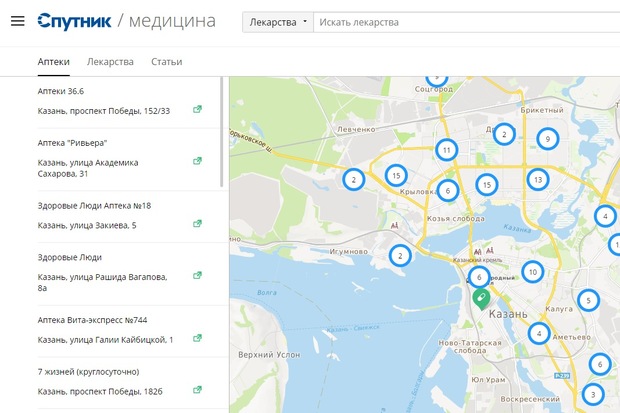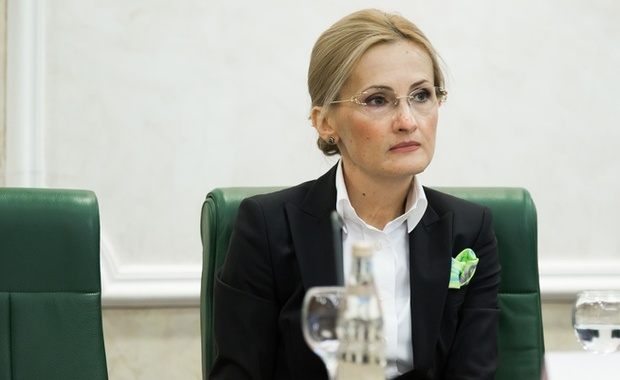Without Sputnik browser: the government fails to create the competitor to Yandex and Google for $20 million
The domestic search engine Sputnik can be closed or focus on other tasks, reports Vedomosti. The project was launched almost three years ago could not compete with the market giants such as Yandex and Google. Why the state needed its own search engine and how the media evaluated the project, read in Realnoe Vremya.
4,000 hits a month
The search engine Sputnik was launched by the forces of Rostelecom three years ago. Sputnik was positioned as the public search system that, according to the creators, was to become the point of access to digital infrastructure of the society and the state. The project was presented on 22 May 2014 at the St. Petersburg International Economic Forum. Sputnik was presented to the honoured guests by Vice President of Rostelecom Alexey Basov, who declared the goal of the project — to get into the top ten of the Runet by attendance in four years.
Over the past three years, Sputnik has failed not only to become an alternative to Yandex or Google but even a slightly prominent figure on the market. It is evident by the April figures of LiveInternet, last month from Sputnik to other sites of Runet there were about 100,000 hits. Yandex's and Google's figures amount to billions.
Although at first the new product was the center of attention of the Internet community. On the very first day of its existence, Sputnik received more than 500,000 visitors. But then the interest fell. According to CNews estimates, in July 2016, the average number of user clicks from Sputnik amounted to 4,100. Yandex and the Russian version of Google had 74,2 and 49,7 million hits, respectively.

Out of spite CIA!
Its most important task can be called the priority of official sources of information. The idea that Russia should have a state Internet search engine has existed in the local government echelons for quite some time. In April 2014, the words of Russian President Vladimir Putin that the Internet has emerged and developed as a special project of the CIA have become iconic. And just a month later Sputnik was presented to the public. The media actively discussed that the project was launched only based on the idea of state control over the information output.
Sputnik was positioned as a portal for families and children and also for elderly people and active users of public services. Sputnik was integrated with a few services for searching official information, to obtain government services and addresses of government agencies. Thus, the user through Sputnik was suggested, for example, to look for the cheap drugs or the nearest veterinary clinics.
In February 2015, the search engine got its own mobile browser, but after six months its PC version.
In May 2016, the browser Sputnik was included in the national registry created in the framework of the three-year plan for switch of the Russian ministries and departments on domestic software. Under the new law, the state agencies are prohibited to purchase foreign software if there are Russian analogues in the registry, and Sputnik was right there.

Who pays?
Sputnik browser was created by KM media for Rostelecom. Subsequently, the operator bought the company. Now, Sputnik PLC is 74,99% owned by subsidiaries of Rostelecom (RTKomm.ru and Rostelecom international limited), and 25.01% — by the founders of KM media Vasily Vasin and Vyacheslav Rudnikov.
In the press (including foreign) there was information about the size of the initial investment in the project. Among other things, it included the amount of 20 million dollars. According to SPARK-Interfax, Sputnik's revenue in 2015 amounted to 136,6 million rubles, a loss — 150,5 million rubles.
The state owns 51% of Rostelecom, and therefore the costs and losses of Sputnik in one degree or another can be considered costs and losses of the national budget. At the same time, Aleksey Basov in an interview with Afisha said that ''Sputnik was developed and is operated on private money of Rostelecom''.
What will happen to Sputnik
Novaya Gazeta has suggested that Sputnik might be useful in the implementation of the Yarovaya's Act, according to which telecoms operators and Internet service providers from 1 July 2018 up to six months are obliged to store all traffic of its customers.

The representative of Rostelecom Andrey Polyakov in comments to Vedomosti that the plans of development of Sputnik will be amended: ''The company wants to increase efficiency and reduce costs,'' he said. Besides, Sputnik has contracts related to public services and the calculation of big data, the newspaper reports.
What will happen to Sputnik depends on the new president of Rostelecom Mikhail Oseyevsky who previously worked as the chairman of the Board of VTB. Former head of the operator Sergey Kalugin continued his work as Deputy Minister of communications and mass communications. Perhaps the experience of the new manager and the influence of the former will make Sputnik more popular.